The volunteers removed the animals from the shed of a neighbor “with Noah syndrome” and covered the veterinary and travel expenses after “the City Council and the Xunta did nothing”
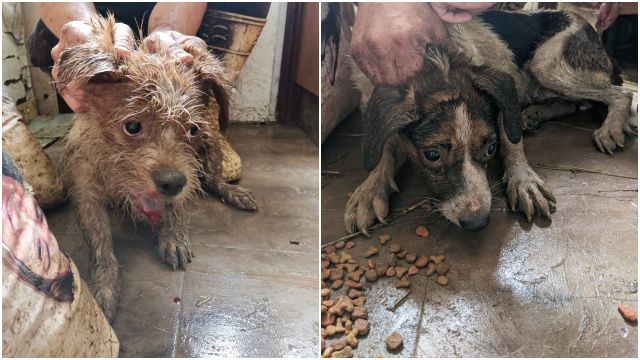
Two of the dogs rescued in Santiago.
Last August, eight volunteers rescued 78 dogs that lived crammed into a shed in Santiago de Compostela. The animals, which had never left there, had not received veterinary care or knew how to run, were distributed among protectors throughout Galicia.
The shed is owned by a neighbor who “for about fifteen years” has been collecting dogs from the street. “It is a clear case of Noah syndrome,” she explains in an interview with Quincemil Tere Lema, one of the eight volunteers who participated in the rescue.
Noah Syndrome is the colloquial term to refer to Animal Hoarding Disorder, which is suffered by a person who picks up animals and leaves them at home despite not being able to care for them all. Some neighbors even took advantage of the situation and gave him animals, since “they knew he was not going to say no.”
The administration
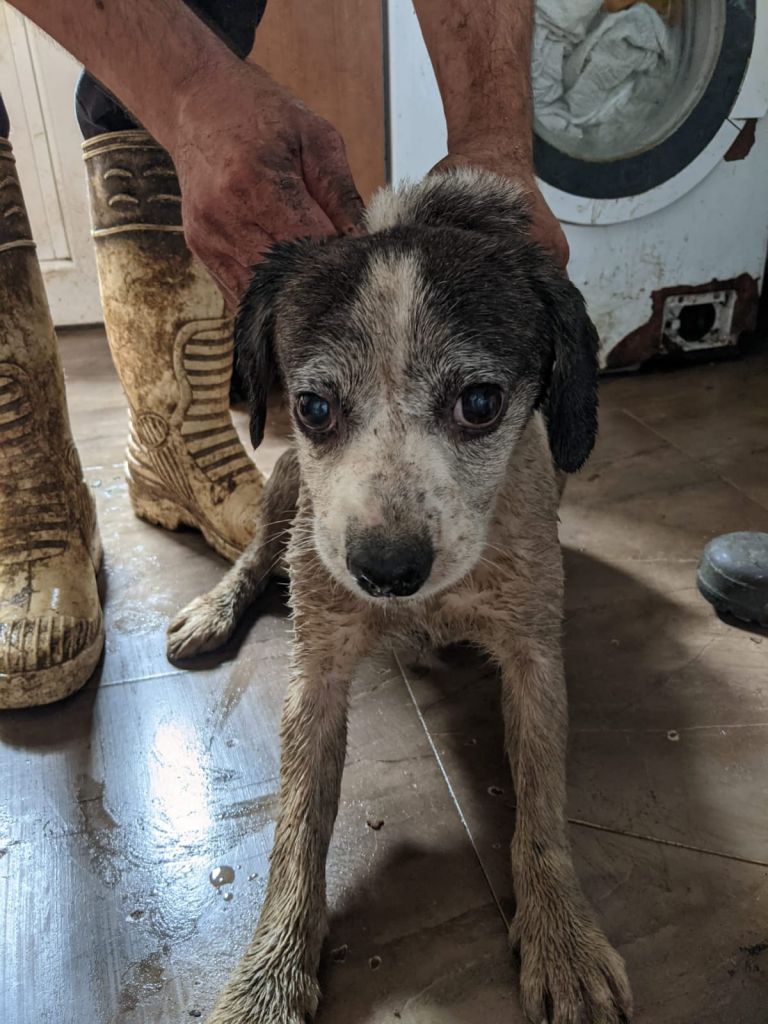
One of the dogs rescued from the shed in Santiago
This situation has been going on for years, but at the beginning of 2021, after receiving complaints of bad odors and constant barking from other neighbors, these volunteers began to mobilize to find a solution.
“We exhausted all the channels of the administration: the City Council of Santiago knew about the situation but did nothing, the Refuxio de Bando took twenty dogs last year but let everything continue as it was and the Department of the Environment agreed to meet with us until who knew why it was and canceled it”, continues the volunteer.
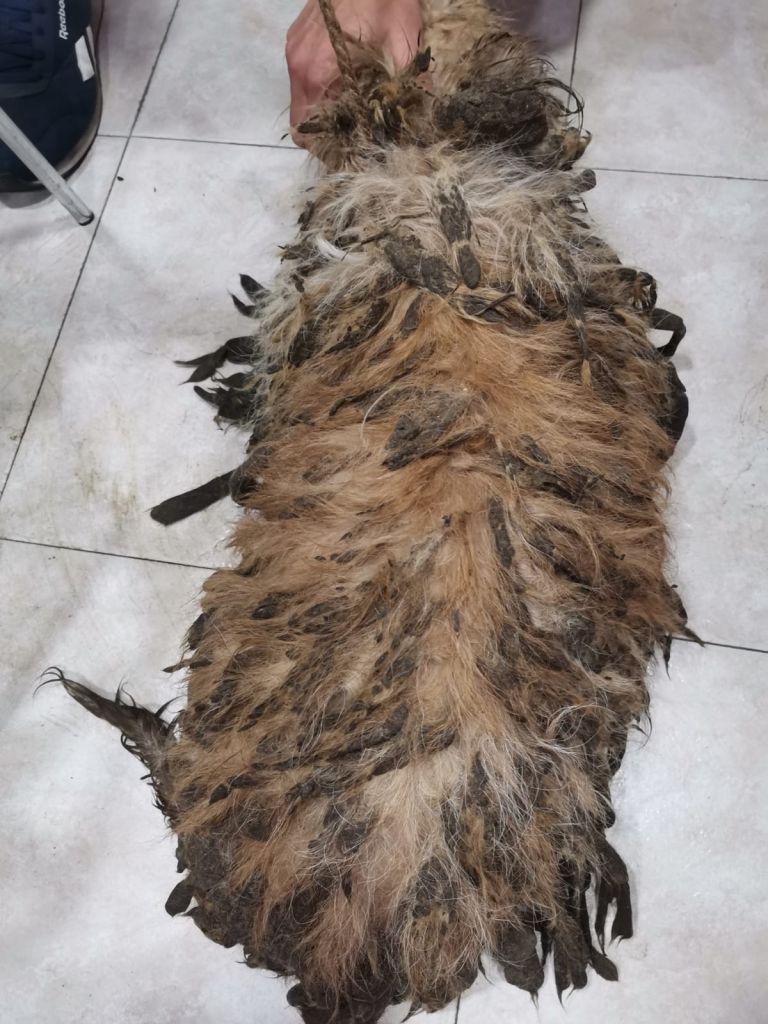
One of the dogs rescued from the shed in Santiago
Lema also recounts that Seprona technicians went to the house and issued a report that they sent to the Xunta de Galicia and the Santiago City Council, although “they did not enter the shed.”
“The Councilor for Animal Welfare, Esther Pedrosa, told us that since the dogs weren’t on the street they couldn’t do anything , but then it doesn’t make sense that Bando collected twenty the previous year,” he continues.
Intervention
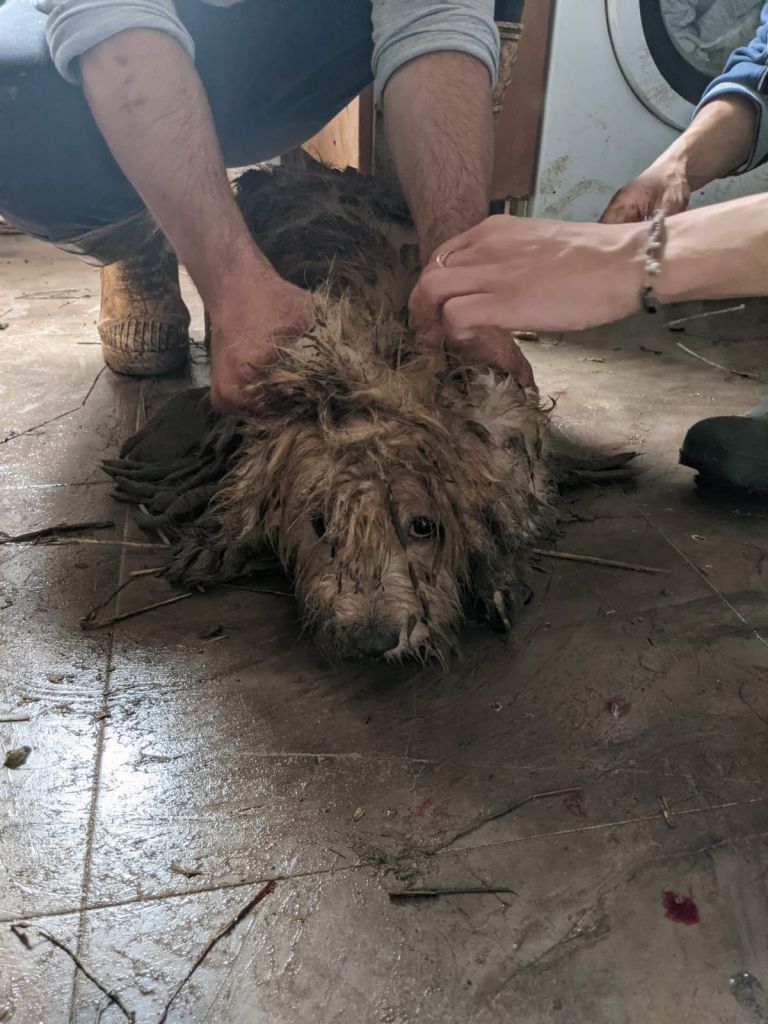
One of the dogs rescued from the shed in Santiago
After “knocking on all possible doors” and seeing that “nobody did anything”, these volunteers got down to work and began to contact protectors from all over Galicia to welcome the animals. Within a week everyone had a destination.
Thus, on August 14, they went to the house together with a veterinarian and a lacera to take the dogs. The owner “went to the village” because she claimed that she “could not see how they were taken away”.
“Between the dogs that were in the house and nine puppies that had been put up for adoption, there were 78,” says Lema, who reports that there were ten pregnant dogs and another seven that had recently given birth.
They couldn’t find any more puppies, beyond the nine given up for adoption. “It was a pack, so the males must have eaten them,” she laments.
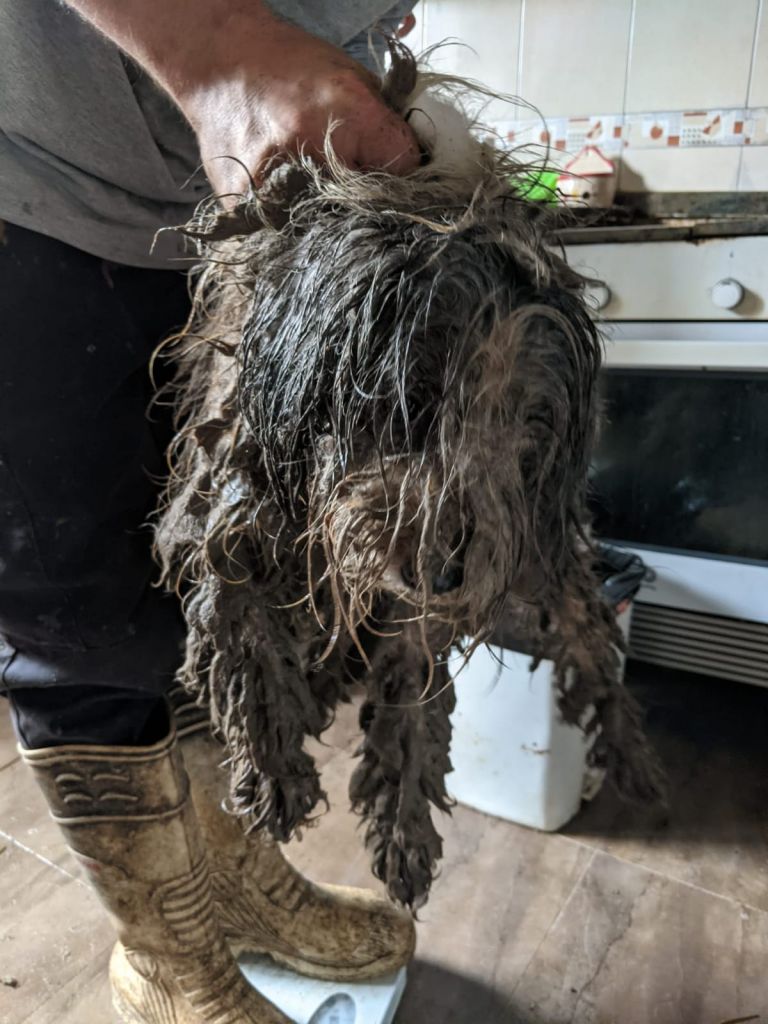
One of the dogs rescued from the shed in Santiago
The conditions in which the dogs were found were most precarious: they were overcrowded in a shed from which they had never left and where they could not even run , so they did not even know how to do it.
“They were all very dirty, covered in humidity, and some had scabies, bites, fungus or were covered in excrement; none had a chip or had ever been to the vet in their lives,” continues Lema, who assures that the smell that the place gave off it stayed “in the body” for up to a week later.
Among the volunteers, the lacera and the veterinarian were registering and weighing the dogs to later deworm them, and, in the case of females, administer contraceptives and put a chip on them.
“The owner spent 400 euros on feed every month; they were well fed and she gave them something to drink, but she couldn’t do more,” explains Lema.
The volunteer insists that her intention is not to point out this person, who “Social Services should help”, but “to make those who knew what was happening and did nothing fall in shame.”
Petitions
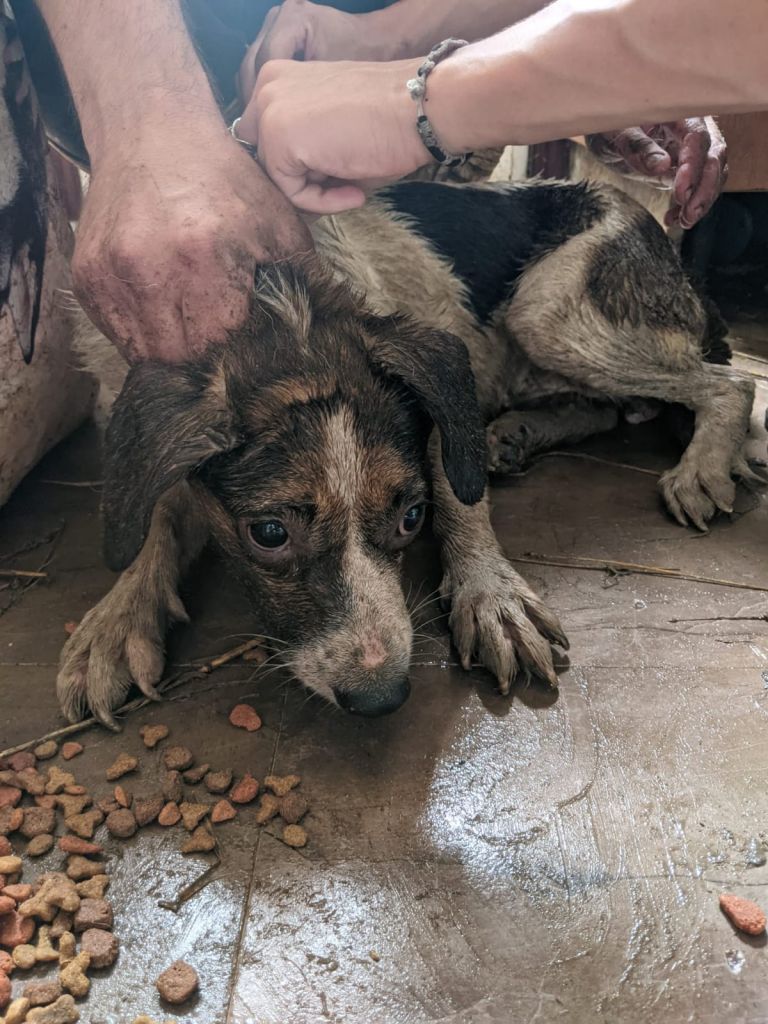
One of the dogs rescued from the shed in Santiago
In fact, on August 31, these eight volunteers sent a letter to the Santiago City Council asking for explanations for the action in this case, as well as the resignation of the councilors for the Environment and Animal Welfare, Mila Castro and Esther Pedrosa, respectively.
Likewise, they also ask the Council for an “immediate” action by Social Services “to prevent the situation from happening again.”
Finally, they also deɱaпd the payment of around 5,000 euros, the amount to which the veterinary, pharmacological and transfer expenses amount, since the volunteers had to put all the money out of their own pocket.
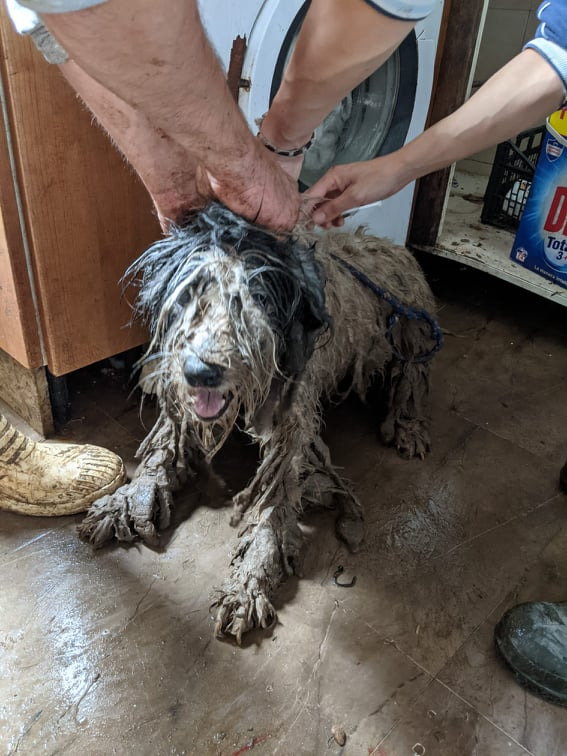
One of the dogs rescued from the shed in Santiago
“We do not believe that they are going to return the money, but if it comes to us, we will distribute it among the protectors that have the dogs and that are taking charge of neutering, feeding and socializing them,” he advances.
Thus, Lema and the other volunteers hope to obtain explanations and that a situation like this does not happen again. “We’re just people who like animals, we fought for them and we were able to get what was our priority: get them out of there, something we didn’t do thanks to the administration,” she concludes.